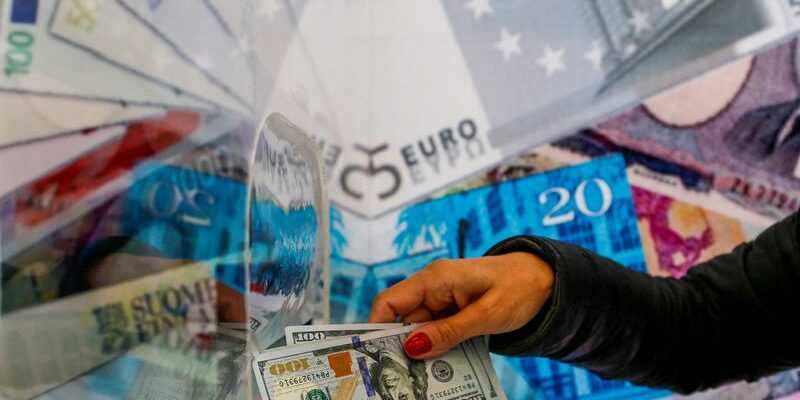Mr Powell has pledged that the US central bank will raise interest rates as high as necessary, including raising them above the neutral rate, in order to kill a spurt of inflation that he says threatens the foundations of economics.
The neutral rate is the level at which economic activity is neither simulated nor limited. It should be around 3.5% by mid-2023.
“It’s a strong reminder to the market that the Federal Reserve is going to raise interest rates, probably at a very accelerated pace, in order to regain credibility on the inflation front,” said Jane Foley, head of currencies at Rabobank.
“The hawkish Fed is the reason sentiment this morning looks a little more fragile than yesterday.”
At 1055 GMT, the US Dollar Index was up 0.3% at 103.57, having earlier touched a two-week low following Tuesday’s 0.9% decline. It hit a two-decade high above 105 last week.
The euro briefly dipped below $1.0500, reversing an earlier rise to a week-long high, a day after European Central Bank policymaker Klaas Knot said a rise in the euro rate 50 basis points in July was possible if inflation becomes more widespread.
Knot is one of the most hawkish members of the ECB, Commerzbank analysts noted, adding that his opinion did not necessarily reflect the majority opinion on the ECB council.
“Nevertheless, by making this comment, Knot is opening up a new line of attack for the ECB hawks,” Commerzbank analyst Ulrich Leuchtmann said in a statement.
On Wednesday, more ECB policymakers beat the drum for interest rate hikes in the coming months. Money markets are now expecting rate hikes of up to 108 basis points for the rest of the year.
Finland’s central bank chief Ollie Rehn said the ECB would have to move out of negative interest rate territory relatively quickly to avoid unanchored inflation expectations, while Spain’s Pablo Hernandez de Cos said said rates will likely start to rise early in the third quarter.
The euro was not immediately affected by comments or data showing that consumer price inflation hit a record high of 7.4% in April, although that figure was revised down from a preliminary estimate of 7.5%.
The single currency was down 0.3% at $1.05175.
The pound fell to $1.23725 as data showed UK inflation rose 9% last month to its highest annual rate since 1982, putting pressure on policymakers.
The Aussie dollar fell 0.1% to $0.7025 as Australian wage growth rose by only a fraction in the last quarter, leading investors to scale back their bets on bigger wage hikes. interest rate.
Cryptocurrency markets have been fairly calm after last week’s turmoil. Bitcoin slipped around 2% and last traded just below $30,000. Ether was holding above $2,000, but was still down just over 2%.
